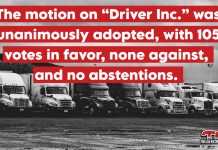The trucking industry must prepare to welcome and work with Generation Alpha, the cohort born between 2010 and 2024. This generation, the first to grow up entirely in the digital age, brings unique skills and expectations to the workforce. Highly adept with technology, they are also deeply committed to social and environmental causes. Their familiarity with digital devices and proficiency with technological tools will shape their professional expectations, making the integration of advanced technologies in daily tasks imperative for employers.
Generation Alpha values flexibility and work-life balance, preferring hybrid or fully remote work models. They seek jobs that allow them to contribute to meaningful causes, such as environmental sustainability and social justice. Therefore, companies will need to adapt their practices to offer an inclusive and dynamic work environment, incorporating sustainability and social responsibility practices to attract and retain these young talents.
This generation also brings an entrepreneurial spirit and a strong inclination for innovation and collaboration. They favor work environments where every team member’s contributions are valued and where cooperative leadership practices are in place. To meet these expectations, the trucking industry must invest in cutting-edge technologies, promote an inclusive company culture, and provide personal and professional development opportunities aligned with Generation Alpha’s values.
However, this generation can be easily discouraged by work environments that do not meet their high standards in technology, flexibility, and social impact. A lack of advanced technology integration in daily tasks, rigid work practices, and traditional office hours can demotivate them, or even drive them away. Generation Alpha places a high value on work-life balance, and an environment that does not offer this flexibility will be less attractive.
Generation Alpha places great importance on sustainability and social responsibility. Companies that do not take concrete steps to positively contribute to environmental and social causes risk losing their engagement. A lack of diversity and inclusivity within the company can also be a rejection factor, as these young people are accustomed to a more diverse and inclusive world than any previous generation.
Finally, an authoritarian and hierarchical leadership style, where innovation and collaboration are not encouraged, can also repel this generation. They prefer cooperative leadership that values listening, inspiration, and encouraging autonomy and creativity. Without these elements, Generation Alpha is likely to seek opportunities elsewhere, where their values and expectations are better respected.
To attract and retain this new generation, the trucking industry must ask itself essential questions: Are we ready to integrate advanced technological tools and adopt flexible work models? Can we promote an inclusive and dynamic company culture that addresses Generation Alpha’s environmental and social concerns and highlight these values to attract them to the profession?
To ensure the prosperity of the transport sector, we will have no choice but to adapt to their expectations and values, which for them, are even more important than pension funds and similar benefits. This transition will be far from easy, especially for older generations who have deeply ingrained habits and traditional work practices. Working conditions in trucking are already demanding, often far removed from the flexibility and social impact visions dear to Generation Alpha.
Employers in the trucking industry will face a dual challenge: modernizing a work environment often perceived as rigid and difficult, while meeting the aspirations of young workers. This includes not only integrating advanced technologies and promoting an inclusive company culture but also adjusting work hours and conditions to better balance professional and personal life. Embracing these changes is essential not only to attract this new generation but also to modernize and improve our practices. Some may feel a strong disconnect between generations, but this effort is crucial to ensuring a prosperous and resilient future for the transport sector.
















